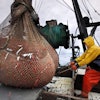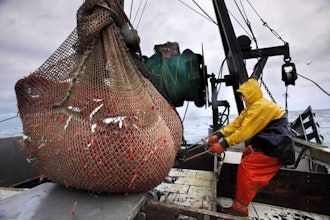
THE HAGUE, Netherlands (AP) — The United Nations' top court on Thursday rejected a case brought by Nicaragua in a decades-long dispute with Colombia over maritime borders and entitlements in the Caribbean.
The International Court of Justice dismissed Nicaragua's bid to gain economic rights over an area of the Caribbean Sea that lies more than 200 nautical miles (230 statute miles, 370 kilometers) from its shores.
Nicaragua wanted the international court to review the limits of its continental shelf, and determine new maritime boundaries for the Central American nation.
Colombia already claims exclusive economic rights in much of the area that lies to the east of Nicaragua's 200 nautical mile boundary. Bogota argued that there is no precedent for extending a country's 200-nautical-mile zone, when it clashes with that of another nation.
Members of Colombia's legal team hugged in court after the ruing, and President Gustavo Petro tweeted that it was "a great victory for Colombia in The Hague."
He added that he hoped the ruling "ends the controversy over our borders, and we will now focus on the sustainable development of our archipelago."
The area has long been claimed by both countries, and Nicaragua gained fishing rights over a big portion in a 2012 ruling by the world court in The Hague. But Colombia's navy has continued to patrol the waters, which are also used by drug traffickers.
Colombia's maritime claims are linked to its sovereignty over the San Andres and Providencia Archipelago, which lies about 700 kilometers (435 miles) north of Colombia's Caribbean coast but only 110 kilometers (68 miles) from Nicaragua's coast.
The world court's president, Joan E. Donoghue, said that a country's right to claim a continental shelf beyond the 200-nautical-mile limit cannot "extend within 200 nautical miles from the baselines of another state." The baselines are points on land from which the continental shelf is measured.
"Nicaragua is not entitled to an extended continental shelf within 200 nautical miles from the baselines of San Andres and Providencia," Donoghue said.
The decision means the world court didn't have to review maritime boundaries between Colombia and Nicaragua, established by the court in a 2012 ruling, which have been under dispute for the past two decades.
The leader of Nicaragua's delegation, Carlos José Argüello Gómez, said that his country would study the judgment "because it has consequences in a very large and complicated area." But he added that "in principle, obviously, whatever the court said, Nicaragua will comply with it."
Under international law, coastal states have sovereignty over waters extending 12 nautical miles beyond their coastlines. They have exclusive economic and environmental rights over the seabed and waters that extend up to 200 nautical miles beyond their coast.
However, some countries have tried to obtain jurisdiction over underwater features that lie beyond that limit, by proving that these features are connected to their continental shelves — that is the shallow seabed that extends beyond the coast.
A 1928 treaty between Colombia and Nicaragua recognized Colombia's sovereignty over the islands of San Andres and Providencia, and gave Colombia economic rights over most of the waters around San Andres.
Nine decades later, Nicaragua filed a lawsuit against this treaty, saying it violated international law and deprived the nation of its right to 200 nautical miles of territorial waters.
In a 2012 ruling, the International Court of Justice sided mostly with Nicaragua and redrew the maritime borders between both countries. The new borders extended Nicaragua's exclusive economic zone, and stripped Colombia of about 80,000 square kilometers (30,000 square miles) of territorial waters.
Colombia didn't recognize the ruling, and withdrew from the court's jurisdiction a year later, in 2013.






















